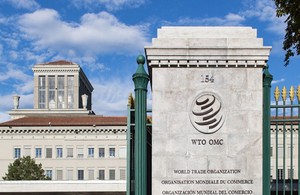Protections for working parents eligible for childcare support
Working parents who are on the Government’s coronavirus support schemes will still be eligible for childcare support even if their income falls below the minimum threshold requirement.
The Government has confirmed that from Sunday 1 November, eligible working parents who receive support through the Government’s new Job Support Scheme (JSS) and extended Self-Employed Income Support Scheme (SEISS) will continue to receive their childcare entitlements, including the 30 hours offer and Tax-Free Childcare, even if their income levels fall below the threshold temporarily whilst on these schemes.
It comes as new data shows that more parents are returning to their formal childcare settings and getting back to work after the impact of the pandemic. Official statistics on early years have found that children’s attendance at the majority of nurseries, preschools and childminders is starting to climb back to pre-pandemic levels.
Children and Families Minister Vicky Ford said:
This Government is increasing the safety net available to families, protecting working parents and our dedicated early years sector. This has been our constant priority, which is why I am so pleased to see attendance rates rising, as more parents return to work and take up the formal childcare arrangements they used before Covid-19 struck.
It’s testament to the hard work of early years professionals that these numbers are returning to what we would have seen before the pandemic.
We know challenges remain for many families, which is why we continue to protect parents’ eligibility for our free childcare offers so they retain this vital support.
Attendance data reveals that more parents are returning to their formal childcare settings, with attendance at early years settings now at 86% of pre-coronavirus daily levels. This is set to increase further as, data published today in the latest parent survey by Ipsos MORI, shows that in September 94% of parents whose child received formal childcare before the pandemic were either using formal childcare now, or were intending to return their child to formal childcare if they could by January 2021.
It also shows that among those families who had returned to using formal childcare in September 71% were at the same nursery, preschool or childminder as before the pandemic, while exactly half were using the same number of hours of formal childcare as before. Only one in eight were using fewer hours, while more than one third (35%) had increased their hours of formal childcare.
Karl Khan, Director General HMRC Customer Service said:
HMRC has been at the forefront of the Government’s response to the pandemic, and we remain ready to help all customers, including those who benefit from Tax-Free Childcare. It’s a generous offer and these easements will ensure that it continues to help working families across the UK in the winter months.
Protecting the eligibility and giving vital support to many working parents across the UK with the costs of childcare – including parents with school aged children up to age 11 and disabled children up to 17 – helps those families return to work when they are able to.
The Job Support Scheme and extension to Self-Employed Income Support Scheme have been launched to replace the Government’s Coronavirus Job Retention Scheme, which ends on 31 October.
The minimum income threshold for 30 hours free childcare and Tax-Free Childcare is usually equal to 16 hours per week at the national minimum wage. In response to the challenges faced by working parents during the pandemic, the Government announced in May that those who were previously eligible, but whose income temporarily dropped as a direct result of the pandemic, retained access to support through 30 hours free childcare or Tax-Free Childcare.
The Department for Education provides 30 hours free childcare to eligible 3- and 4-year-olds in England and has seen 180,000 applications and around 430,000 reconfirmations for 30 hours places since March 2020 demonstrating the importance of protecting parents’ eligibility.
Extending the support further builds on the Government’s continued commitment for those parents who still need it. In addition to protecting parents’ eligibility, the government has provided a significant package of support for the early years sector over the past months to provide stability and reassurance, including providing extra security to nurseries and childminders that are open by ‘block-buying’ childcare places for the rest of this year at the level that would have been funded before coronavirus – regardless of how many children are attending.
Providers will also benefit from a planned £3.6 billion funding in 2020-21 for free early education and childcare places. Providers in the sector remain optimistic about the future as a provider’s survey published today has found that in September, open and temporarily closed GBPs and CMs expect a minimal reduction in their opening days a week compared to before COVID-19.

